Back to blog
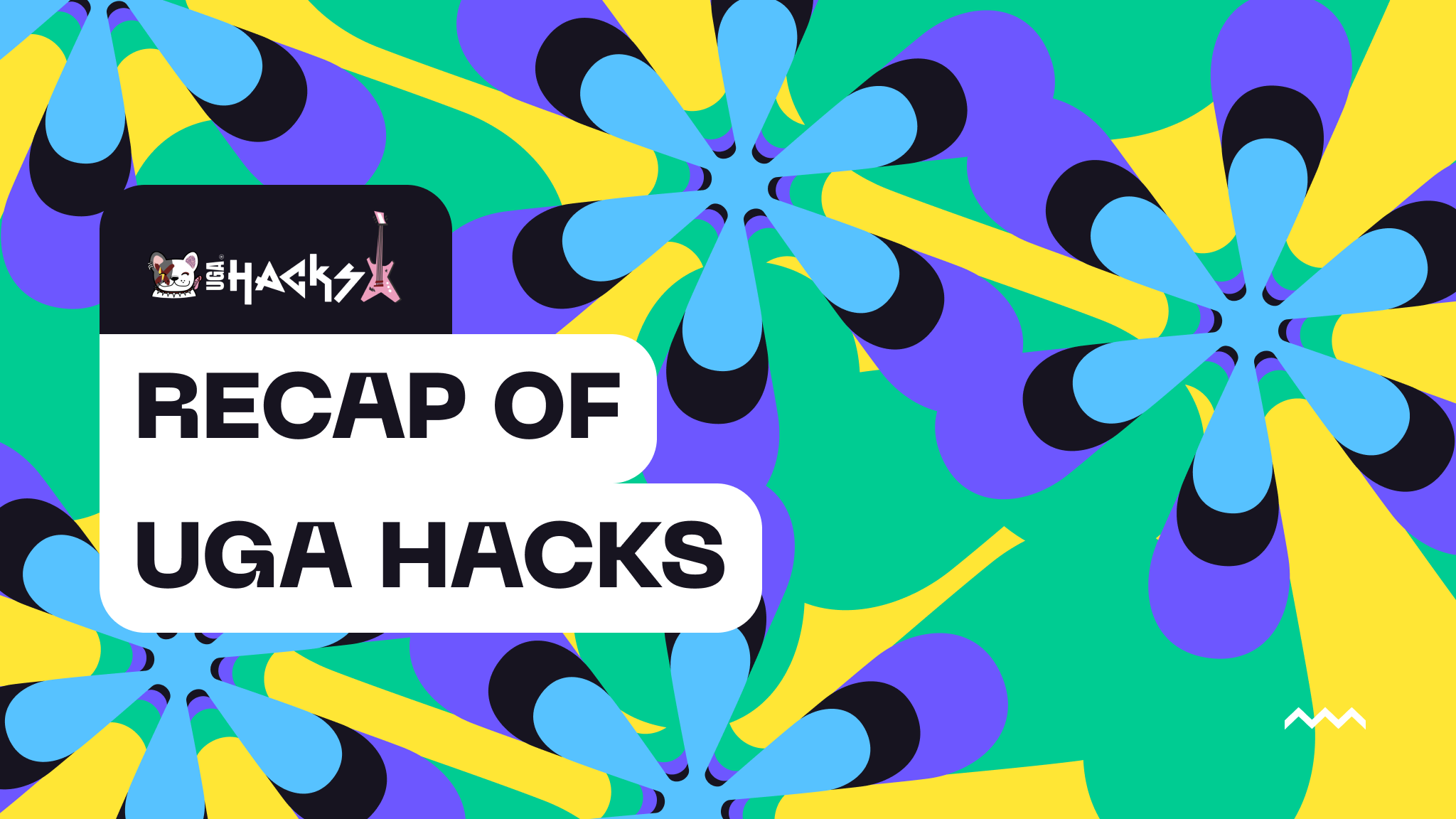
Recap of UGA Hacks
Hackathons go deep into Pinata’s culture of creativity and problem solving, all the way back to when the company was founded in 2018 at ETHBerlin. It’s one of the reasons we try to visit and sponsor as many as we can, especially across colleges and universities. This weekend, we had the honor of sponsoring UGA Hacks’ 10th Hackathon which had over 500 participants. 20 different teams submitted to the Pinata Challenge, with mind blowing projects that demonstrated creativity and skill. We also got to participate in some fun events!
Pinata hosted a workshop on How to Build Decentralized Applications which went over the basics of blockchains, IPFS, and how to use them together in a fullstack app. We had a full house with lots of great questions, and students took the info and ran with it, as you’ll shortly see with our winning projects!
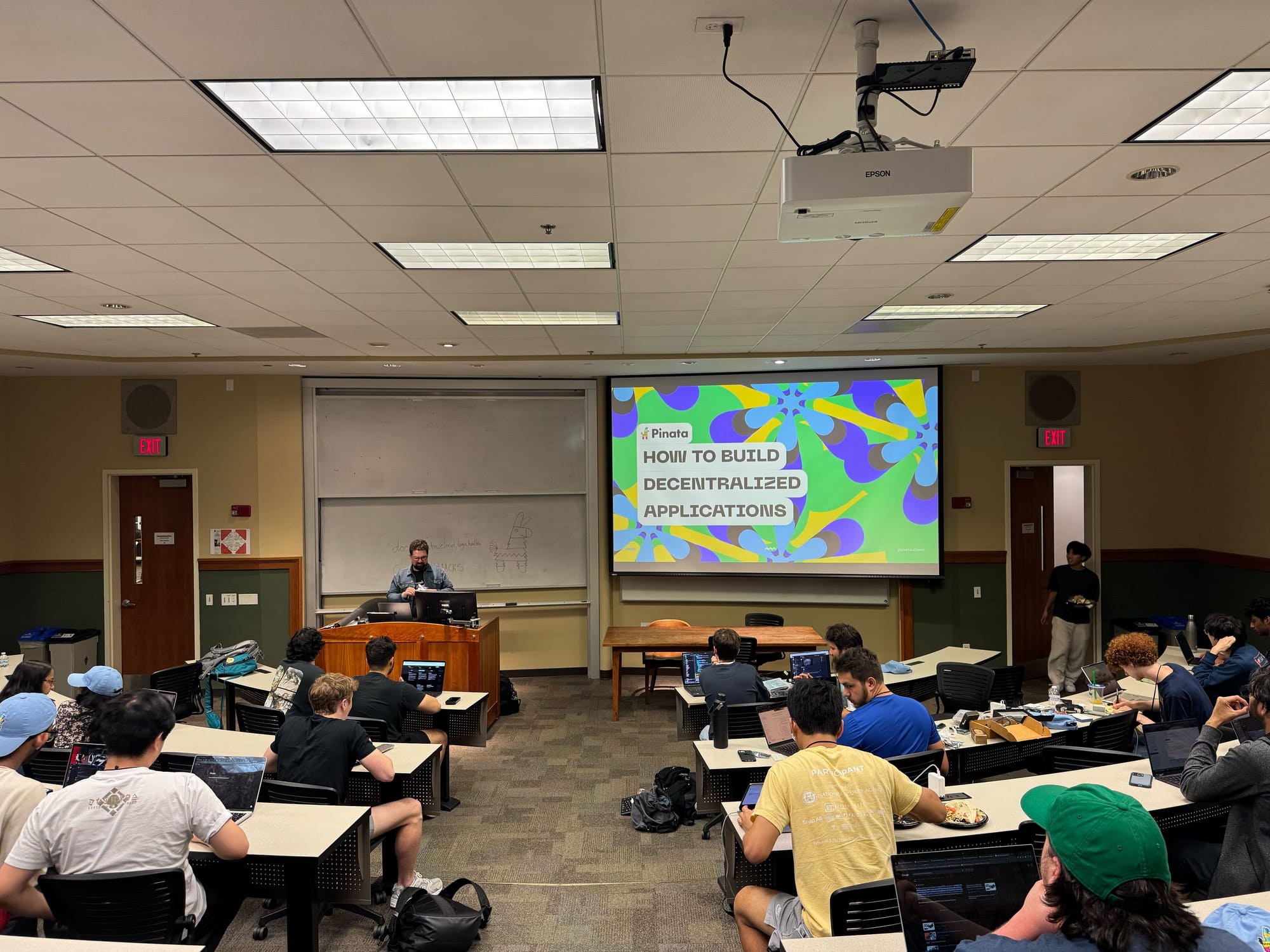
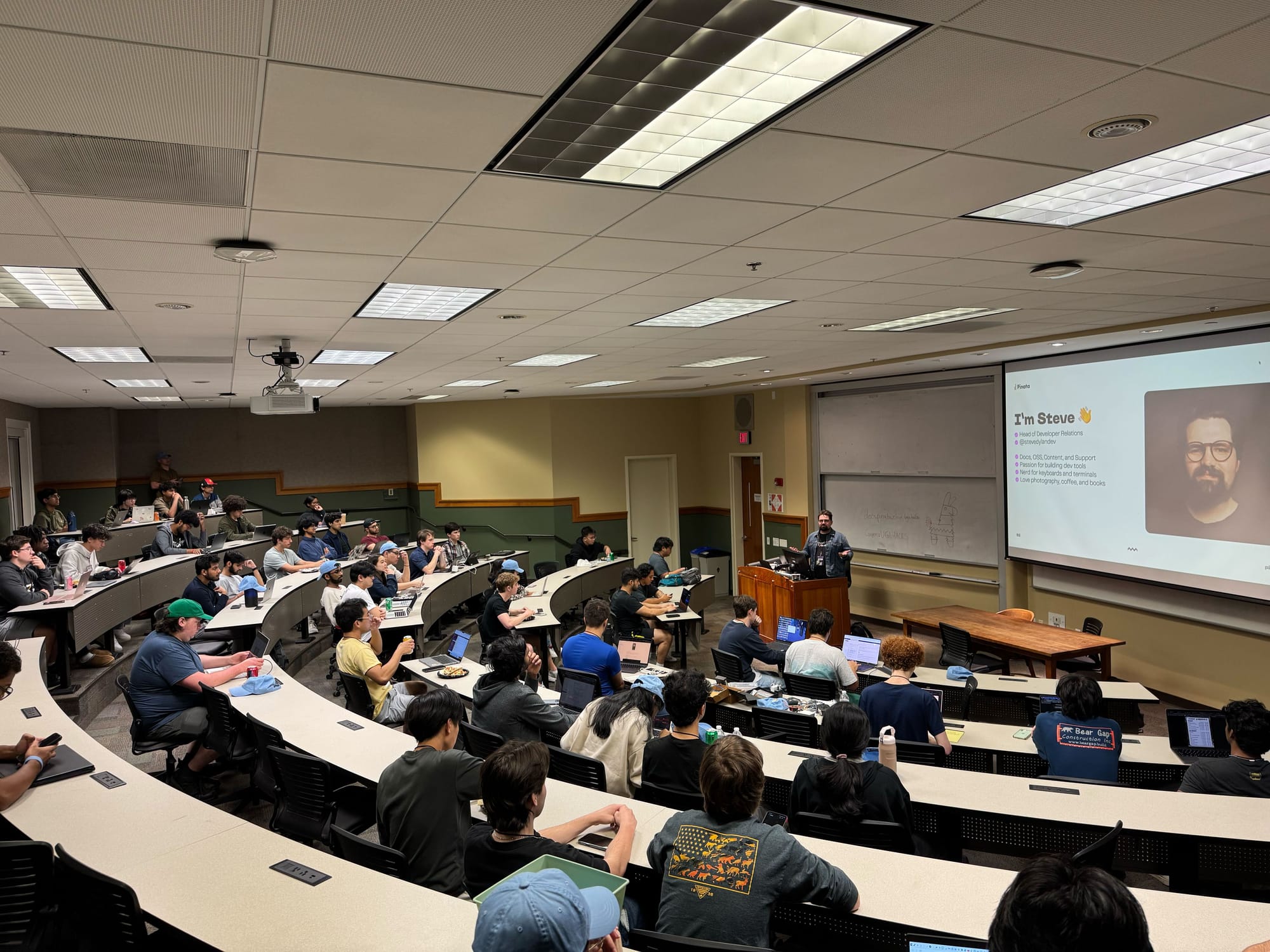
The organizers of UGA Hacks also put on a Sponsors Hot Ones wing challenge where we got to eat some VERY spicy wings and answer questions about Pinata’s history, problems we’ve overcome, and some of our favorite traditions in our company. This was a blast, and for the safety of average people, we cannot recommend DaBomb to anyone.
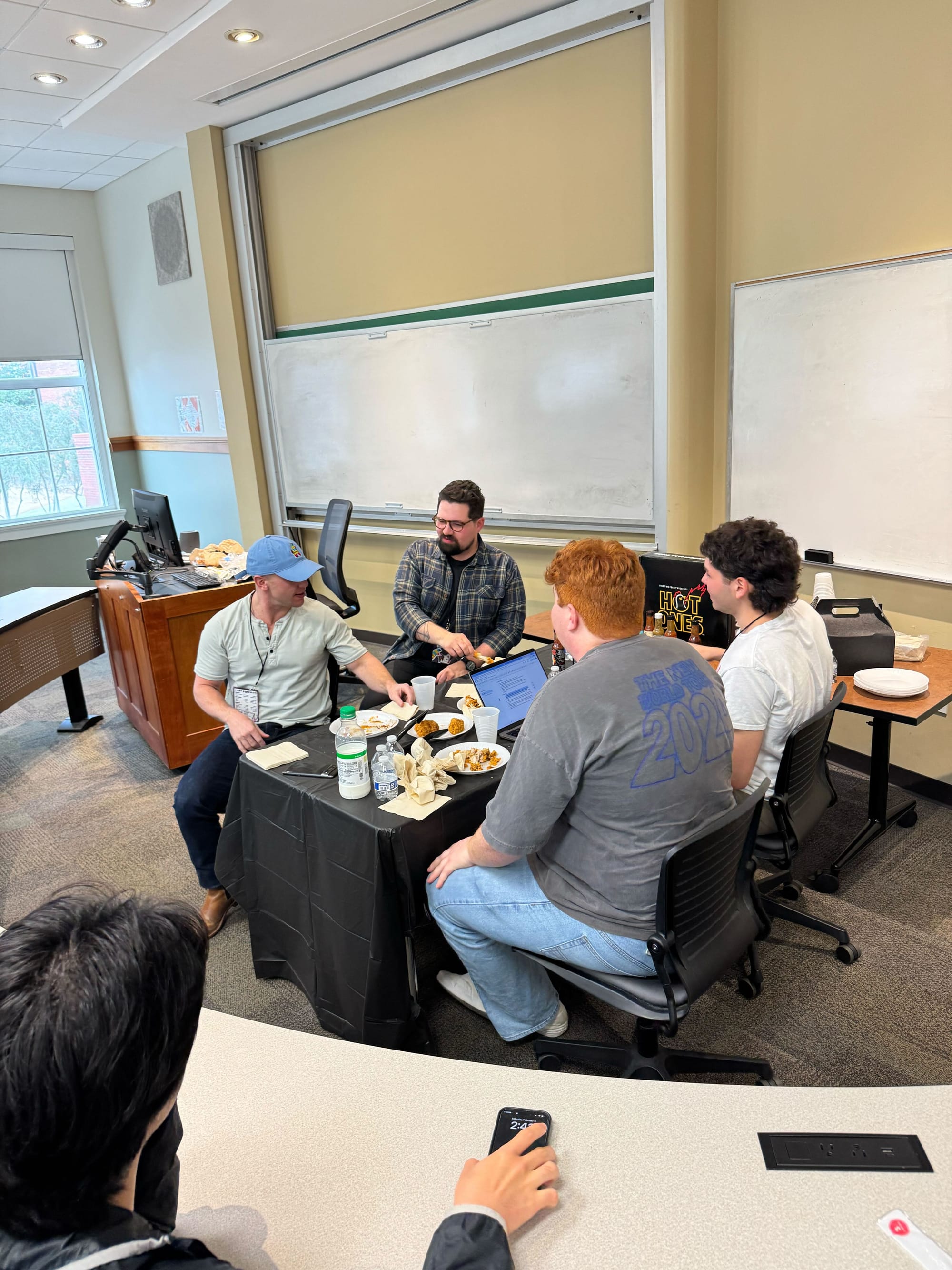
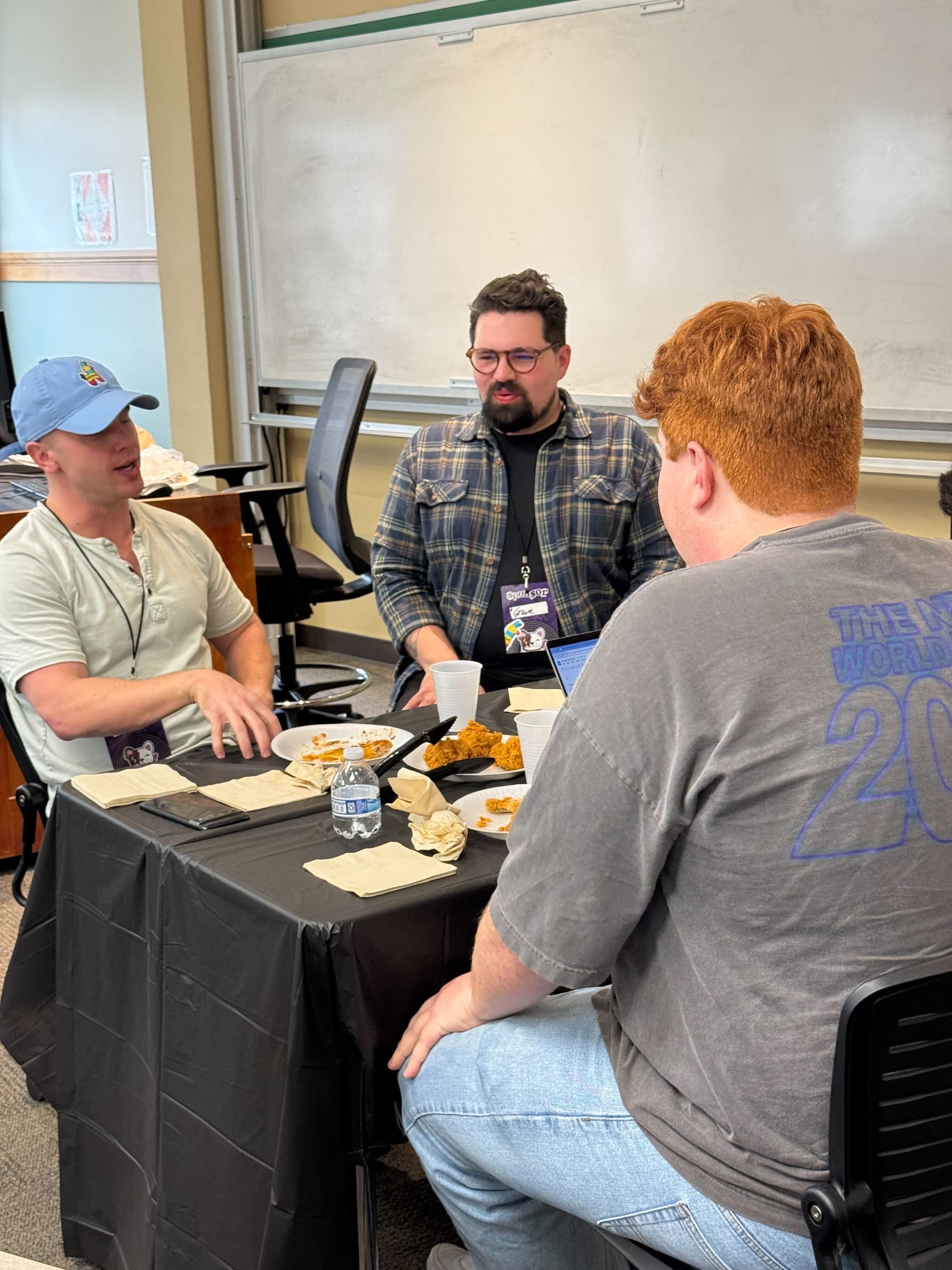
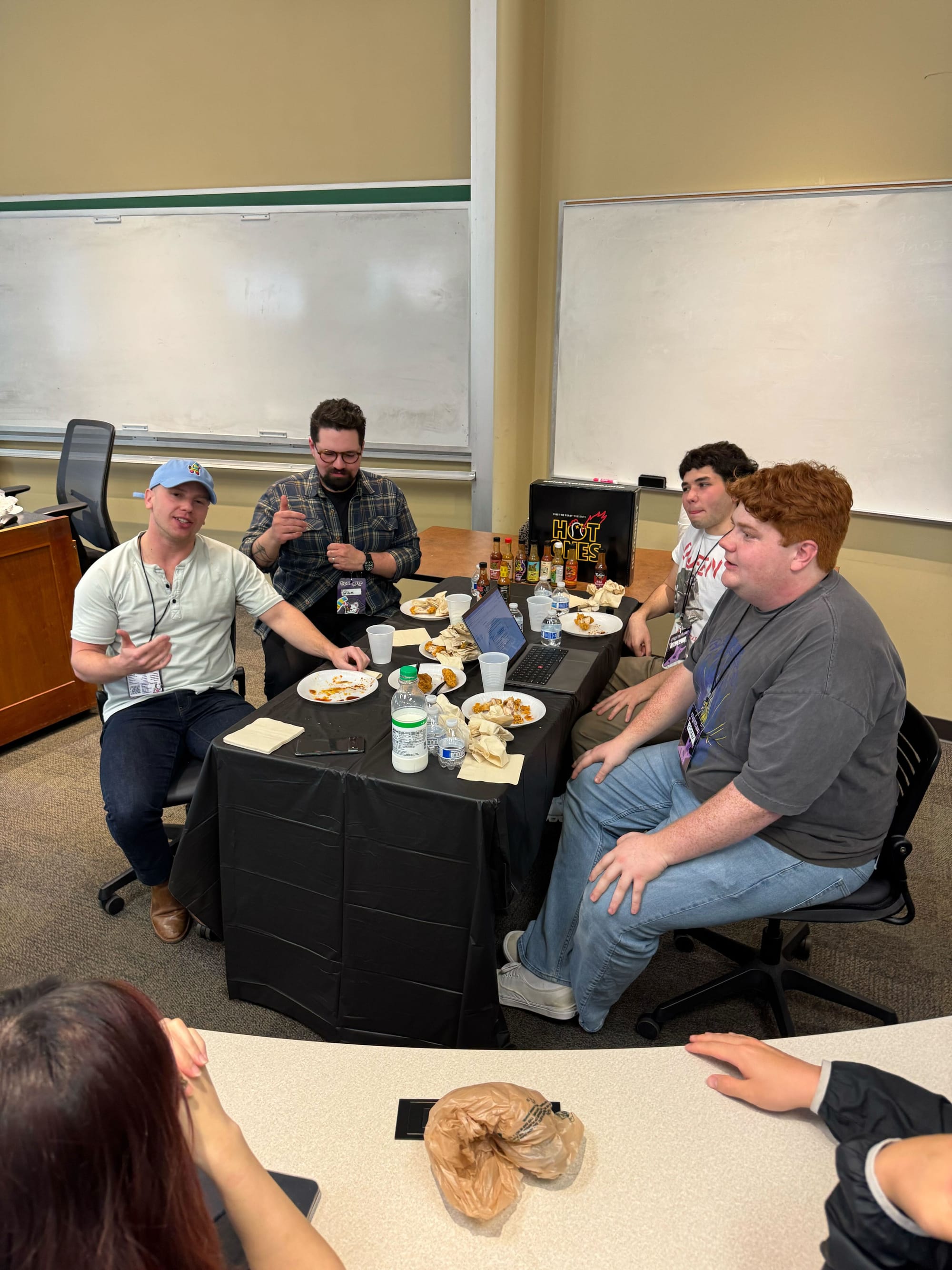
Now, let’s get into our winners! Pinata issued the following challenge to students:
Build the best use case of Pinata’s APIs or SDKs. Can involve blockchain or crypto, but it is not a requirement. Pinata will judge based on:
- Real world usefulness of the app
- How integral Pinata was to building the app
- Pure creativity used in the final product
With 20 submissions, there was no shortage of tough decisions as many teams performed beyond expectations, but we managed to pick our top three and some honorable mentions.
3rd Place - Sona
Starting with third place, we have Sona, an app that allows users to generate music with accompanying artwork based on user prompts with AI. What stood out to us is how thoroughly the team used Pinata’s Groups, Key-Value store, and even Private IPFS. User generated music was private by default, but they had the option to publish it as public content for everyone else to see. All of the files used for prompting, as well as the finished music, artwork, and metadata, all were stored across Pinata’s IPFS and Private IPFS API’s. The team admired how easy it was to use Pinata and praised the benefits of having all types of files in one place rather than having multiple databases or storage buckets for different types of content.
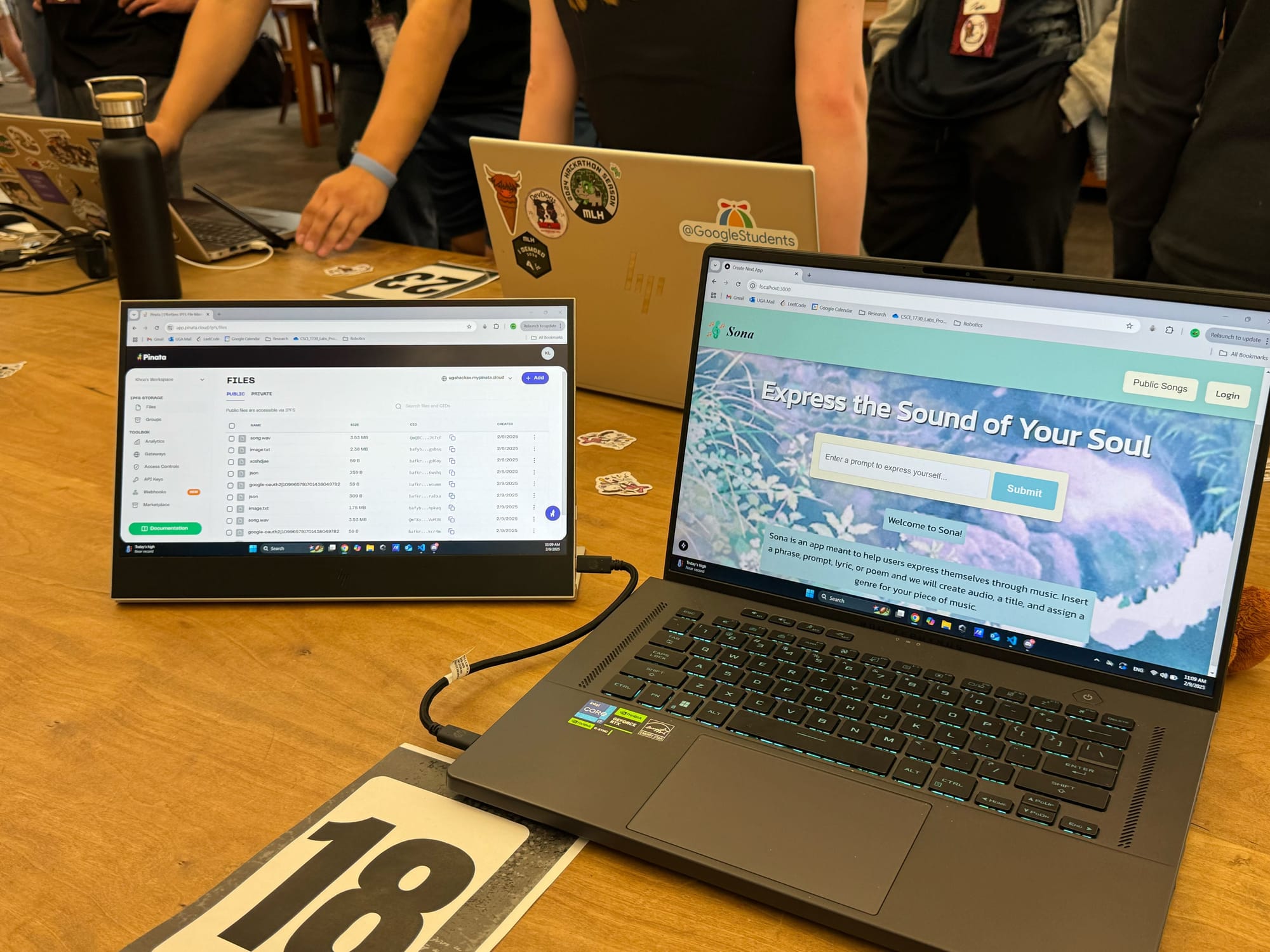
2nd Place - GrooveChain
We like to think most people have thought about becoming a DJ at some point in their lives, but it’s not as easy as it looks. This is what drove a one-man team to build GrooveChain. With this app, users can upload their tracks, have AI analyze data surrounding it like genre, mood, speed, etc.. Beyond that, it enables live edits to the track, generate AI lyrics, all stored on Pinata. What really blew us away is that finished tracks can be minted as NFTs, and sold with the in-app NFT marketplace. How just one person did all of this in thirty-six hours is beyond us, and we thought their win was well deserved!
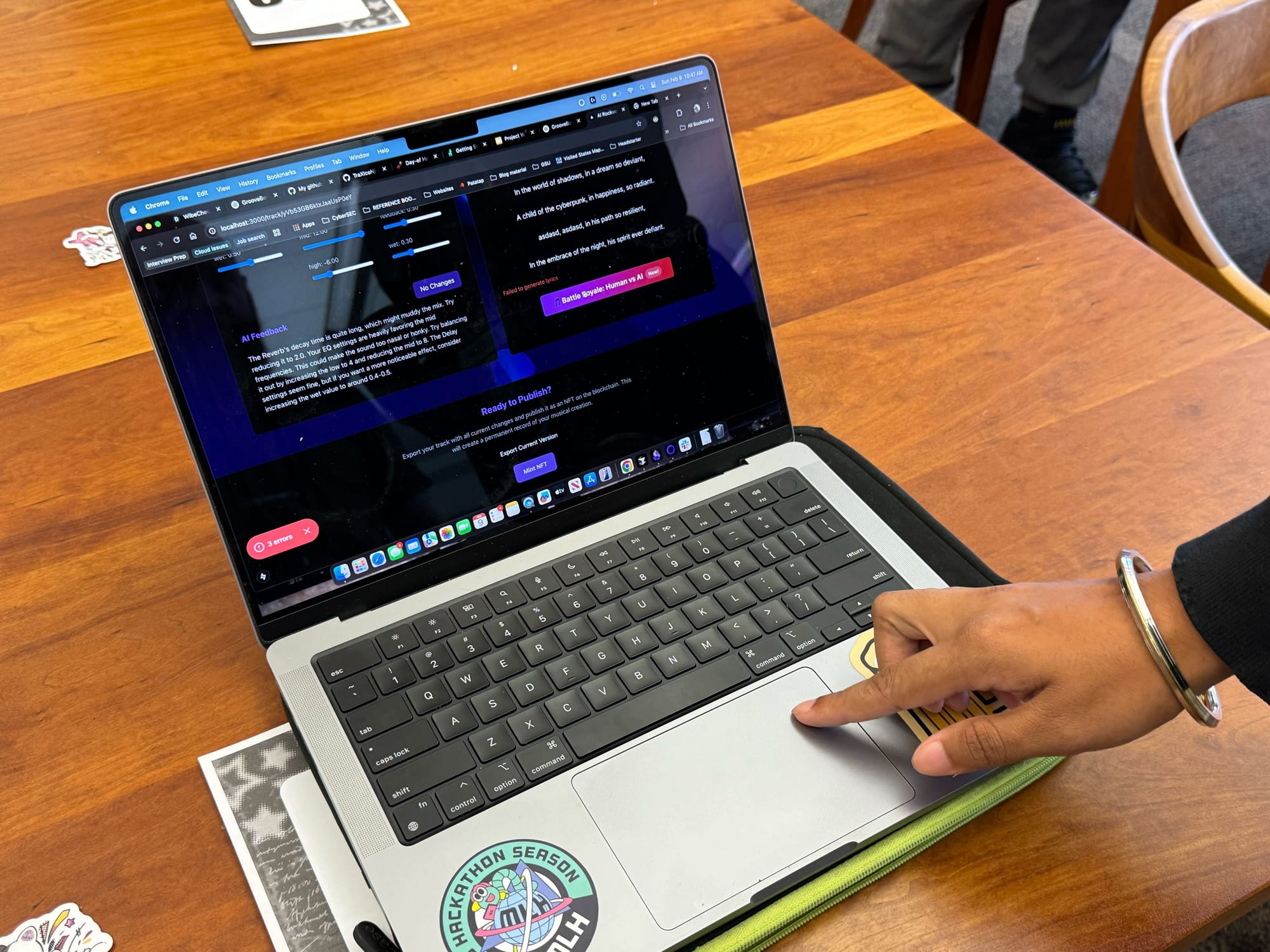
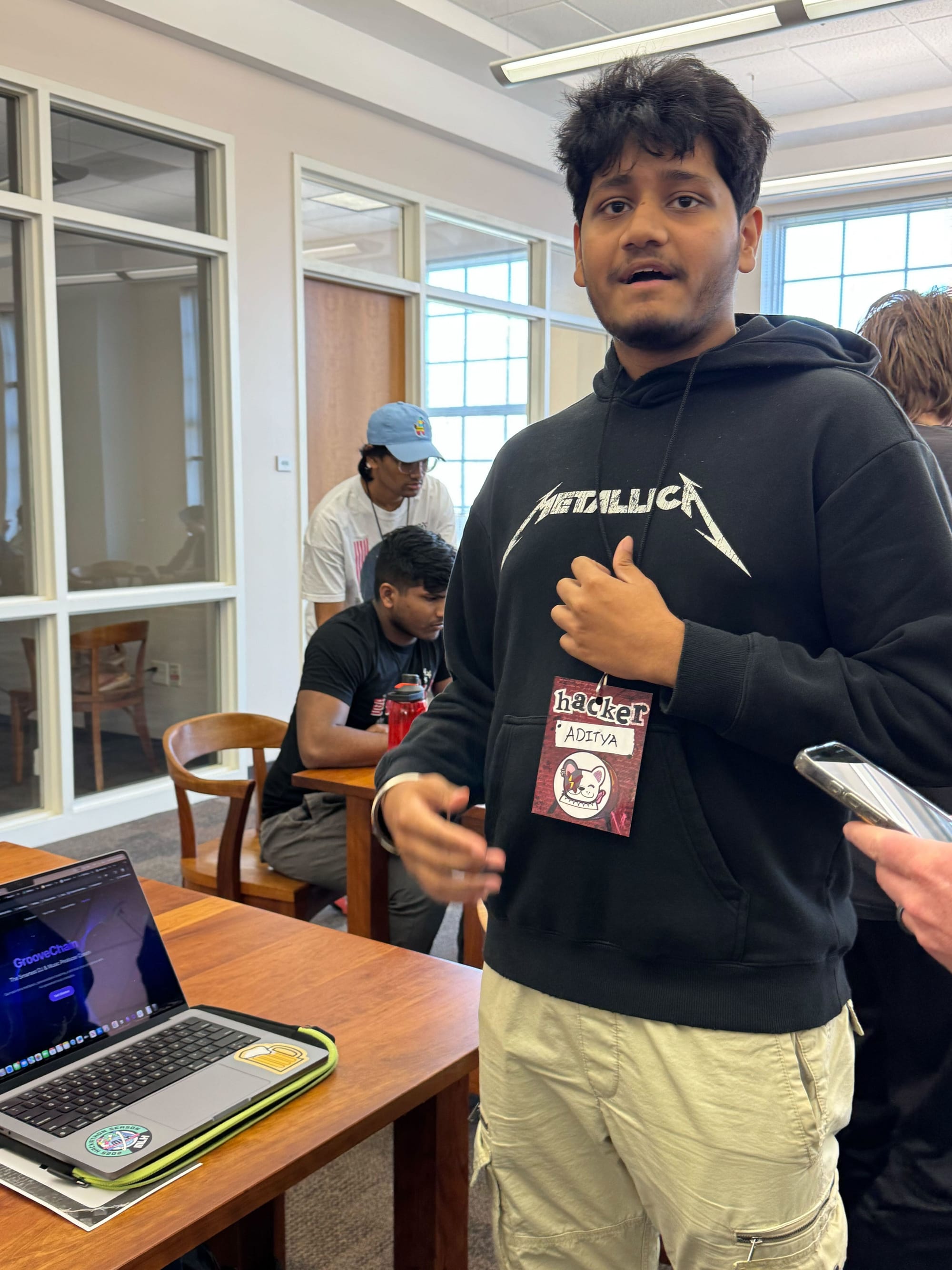
1st Place - StepSync
Last but not least, we saw one app stand out among the rest. StepSync was a platform that gave users a place to learn new dances and get AI feedback on their progress. This was accomplished by uploading videos to Pinata and a server that did node sampling for each frame, recording JSON metadata that was also uploaded to Pinata. These data files were also vectorized by Pinata which allowed the team to query those vectors to do comparisons between dances and provide detailed feedback to the user. This app was highly polished and went above and beyond by learning some of Pinata’s latest features.

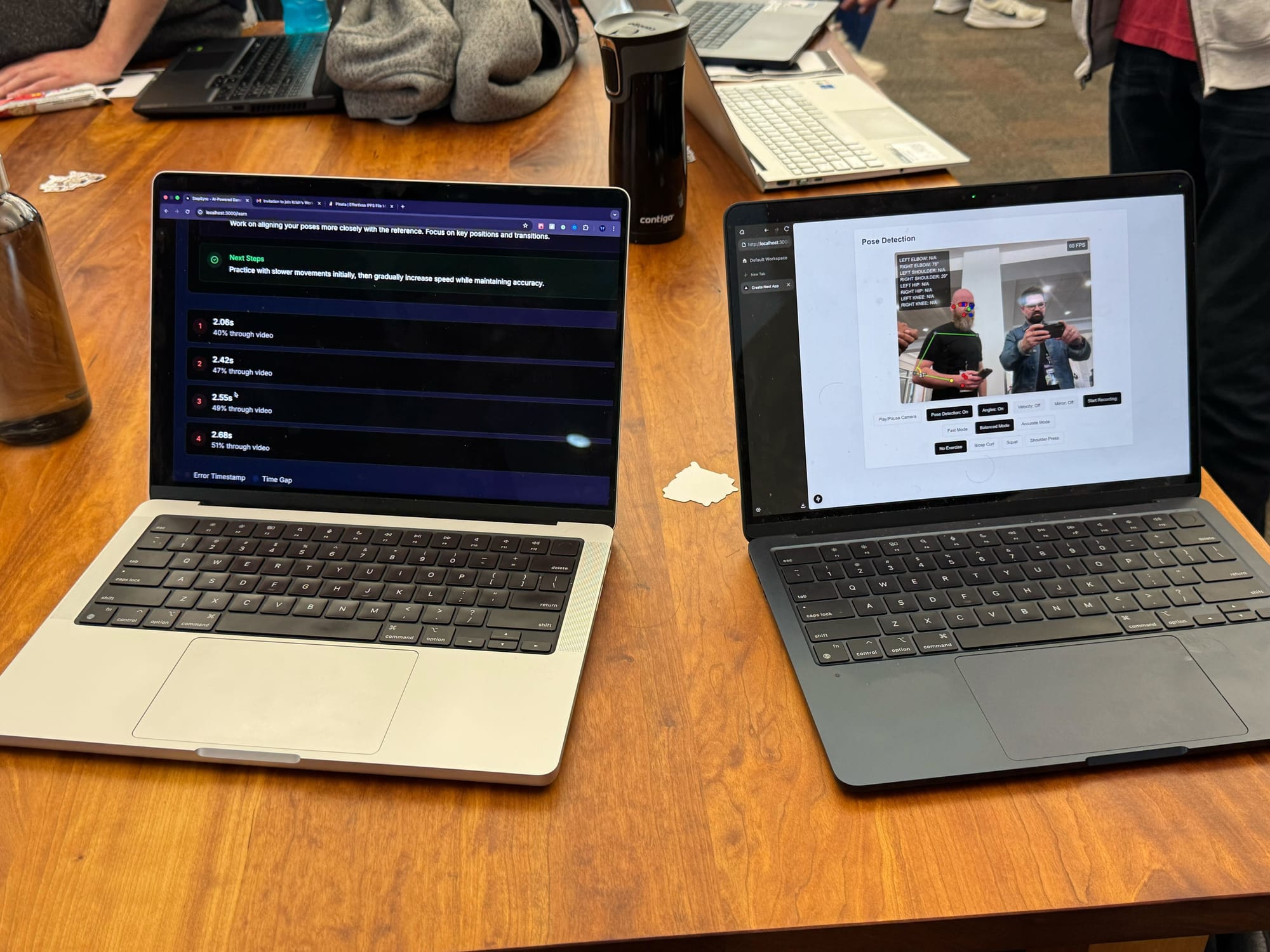
Honorable Mentions
As stated before, these were some tough decisions as there were several other projects that pulled off some amazing feats. We want to mention them here and give them credit for their amazing work!
MedMonitor
A platform that allows doctors to gather patient info security through automated phone calls and AI. The team used both Public and Private IPFS for flexibility and security for user’s data, and demonstrated a great use of Pinata’s Groups and Key-Values!
VotingBlock
Smart contracts are best used to provide trust-less state and governance that live on the blockchain, and the team behind VotingBlock used this paradigm to make a tamperproof polling system. The poll questions and additional metadata was stored offchain with IPFS but then reference onchain with the contracts. Did we mention this was the first time they touched anything blockchain related? Crazy!
Genesis
Last but not least, there was Genesis, a decentralized funding platform similar to Kickstarter. Instead of the project getting all the money at once and possibly not delivering to the supporters, Genesis will only supply 50% initially and then have a schedule of funds that is slowly distributed. If the project does not deliver, the supporters can vote to have their money refunded, and all of this happens through a smart contract and IPFS. Once again, students with little to no blockchain knowledge or experience prove to be capable developers!
Wrapping Up
There is something special about showing people the basics of blockchain and IPFS, then watching brilliant students run with it and build something unexpected. It never gets old for us at Pinata, and that’s why we’ll continue to support hackathons and the builders of tomorrow’s web.
Happy Pinning! :)

